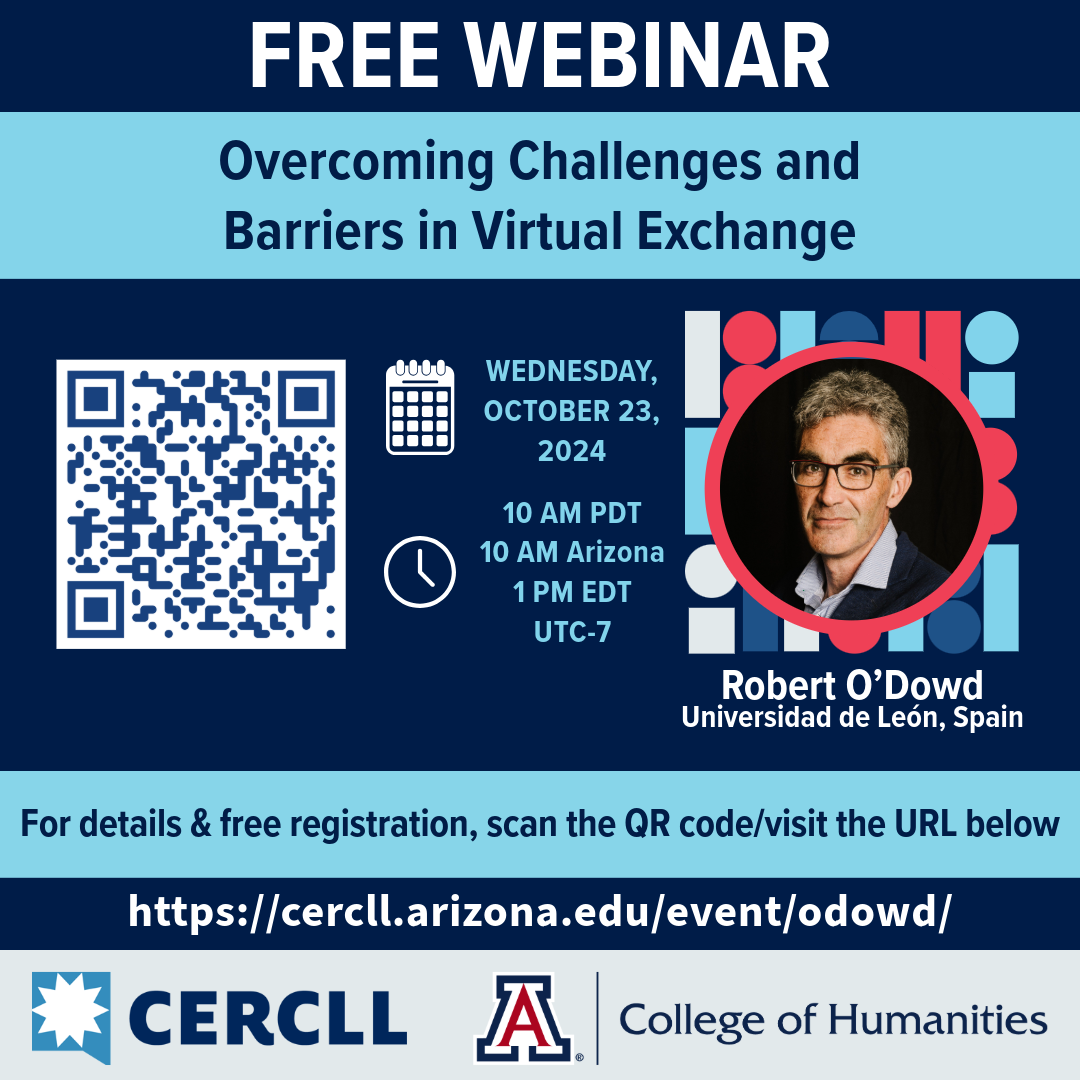A FREE PD webinar presented by Robert O’Dowd (Universidad de León, Spain)
Wednesday, October 23, 2024, 10-11:30 AM Arizona (UTC -7)
➤use key publications from the literature to explore how VE and Blended Mobility can promote foreign language learning as well as global citizenship.
➤outline how VE and Blended Mobility can be integrated effectively into foreign language programmes.
➤reflect on the challenges educators face as we try to use this activity to deal with issues of diversity and inclusion and to establish equitable relationships with partners from other countries.
Abstract:
Forms of online collaborative learning, such as Virtual Exchange and Blended Mobility, are becoming increasingly popular in foreign language education. Virtual Exchange (VE) refers to the numerous online learning initiatives and methodologies which engage learners in online collaborative learning and interaction with partners from different cultural backgrounds as part of their study programmes. Blended Mobility combines stages of online collaboration with short periods of physical mobility.
Although VE has been employed in foreign language education for over 25 years, it has received much greater attention since the recent COVID-19 pandemic and many practitioners are exploring its potential to develop foreign languages learning, intercultural competence and global citizenship in their classrooms (Porto, 2018; Ramirez, 2019; Trapé, 2018).
In this presentation I will use key publications from the literature to explore how VE and Blended Mobility can promote foreign language learning as well as global citizenship. I will also outline how VE and Blended Mobility can be integrated effectively into foreign language programmes. Finally, I will reflect on the challenges educators face as we try to use this activity to deal with issues of diversity and inclusion and to establish equitable relationships with partners from other countries.
O’Dowd, R. (2023). Internationalising higher education and the role of virtual exchange. Routledge.
Porto, M. (2018). Affordances, complexities, and challenges of intercultural citizenship for foreign language teachers. Foreign Language Annals, 52(1), 141–164. https://doi.org/10.1111/flan.12375
Ramirez, C. K. de. (2019). Global Citizenship Education Through Collaborative Online International Learning in the Borderlands: A Case of the Arizona–Sonora Megaregion: Journal of Studies in International Education. https://doi.org/10.1177/1028315319888886
Trapè, R. (2019). Building Empathy and Intercultural Citizenship through a Virtual Exchange Project. Le Simplegadi, 19, 167–180. https://doi.org/10.17456/SIMPLE-136
A list of resources on Virtual Exchange curated by the author can be found here.
Registration is free, but is required in advance. Register here.
Participants attending live can request a certificate of attendance for 1.5 hours of Continuing Education during the event. They can request a digital badge after the webinar, once they are contacted by CERCLL after the event.
Participants who require closed captions or an ASL interpreter during CERCLL’s events should make this request at least a week in advance by emailing CERCLL at cercll@email.arizona.edu.

- For questions regarding this resource, please contact Center for Educational Resources in Culture Language and Literacy (CERCLL).
- Phone No: (520) 626-8071
- Email Address: cercll@arizona.edu
